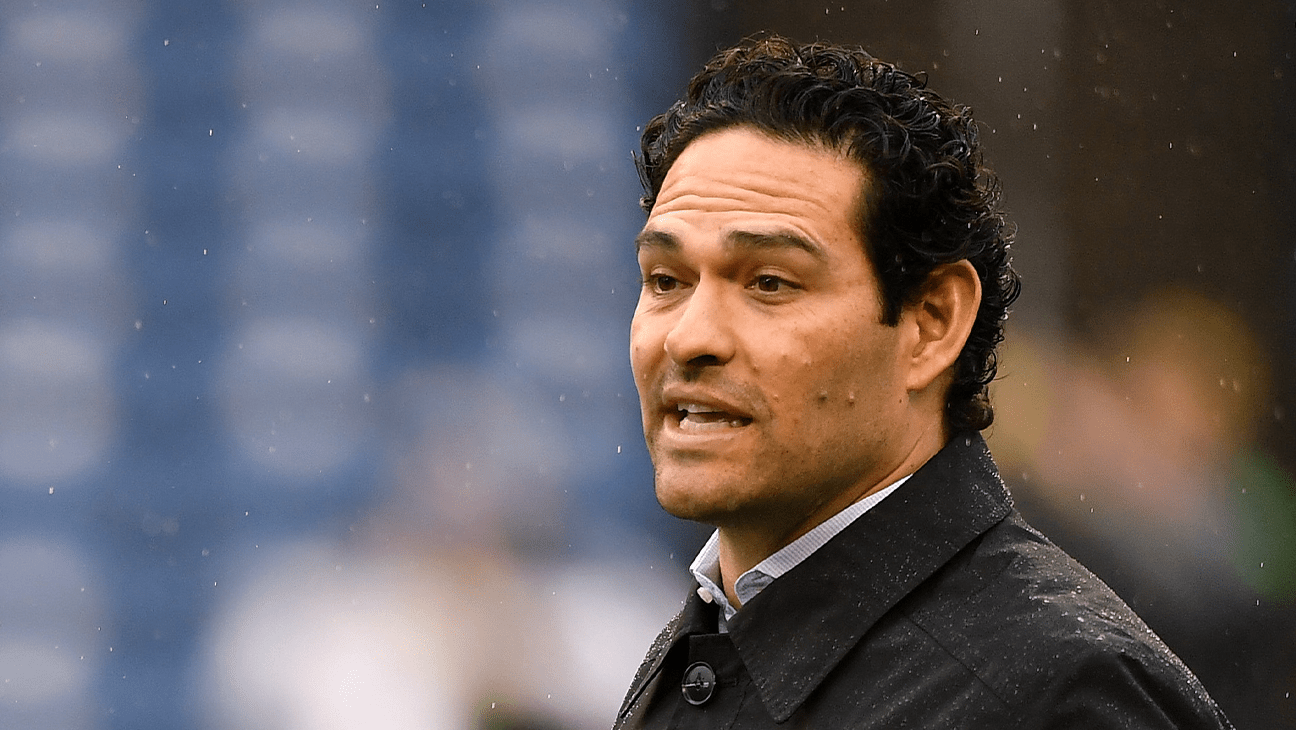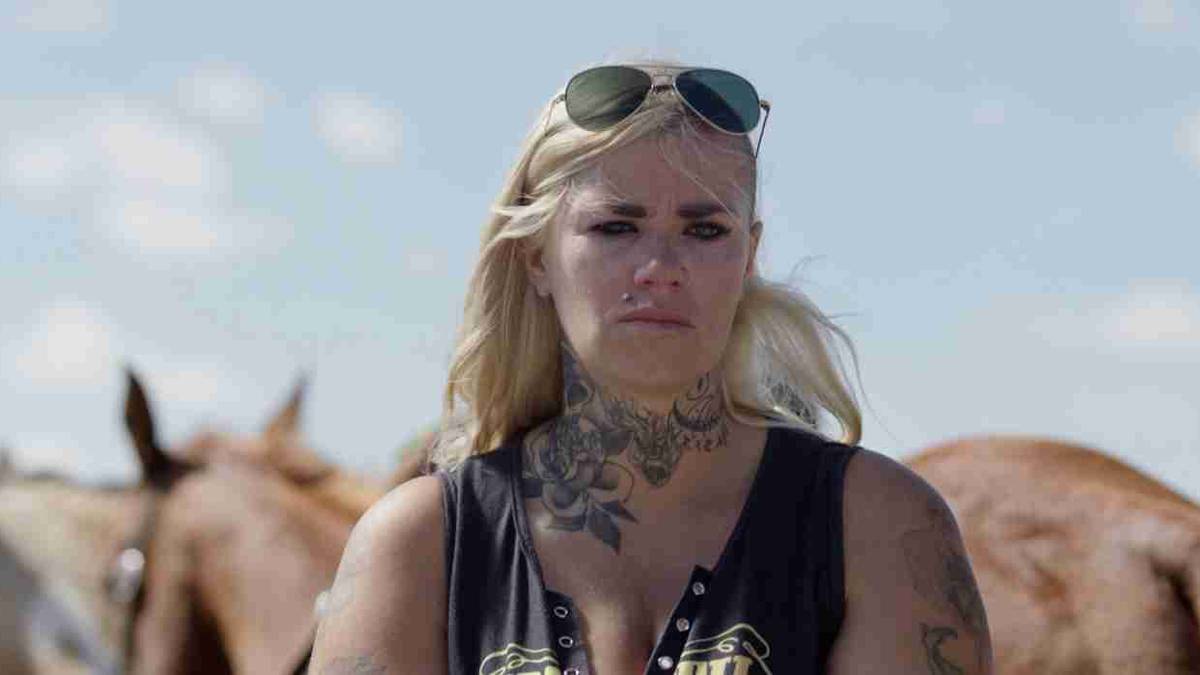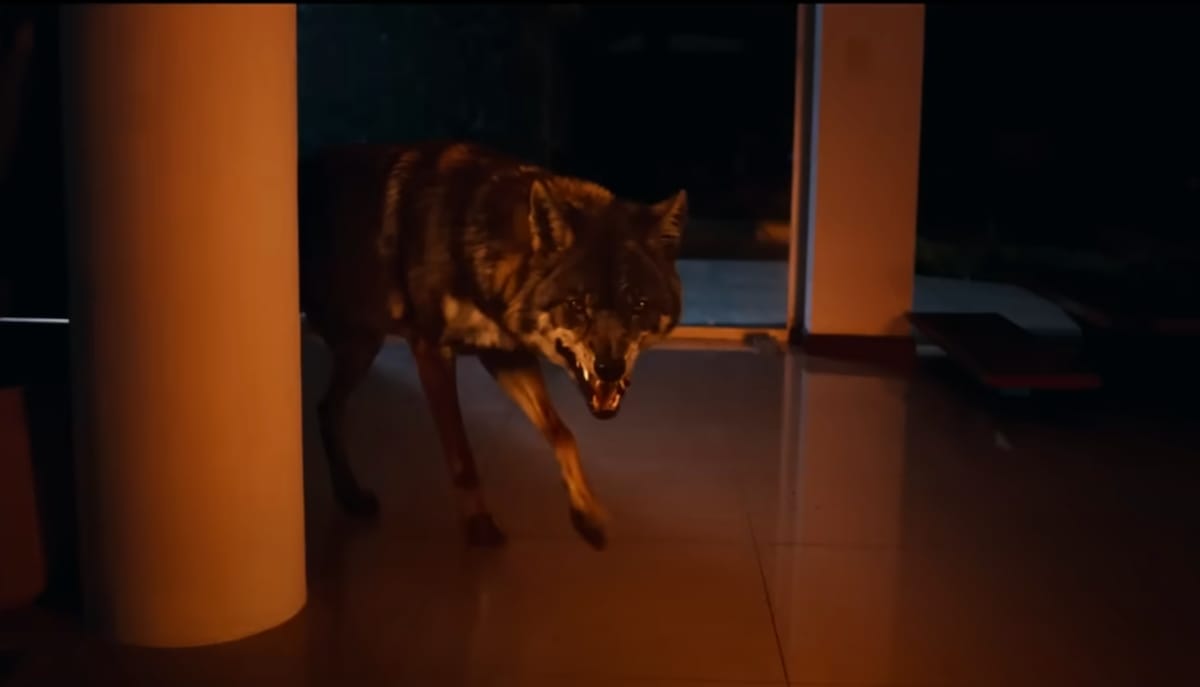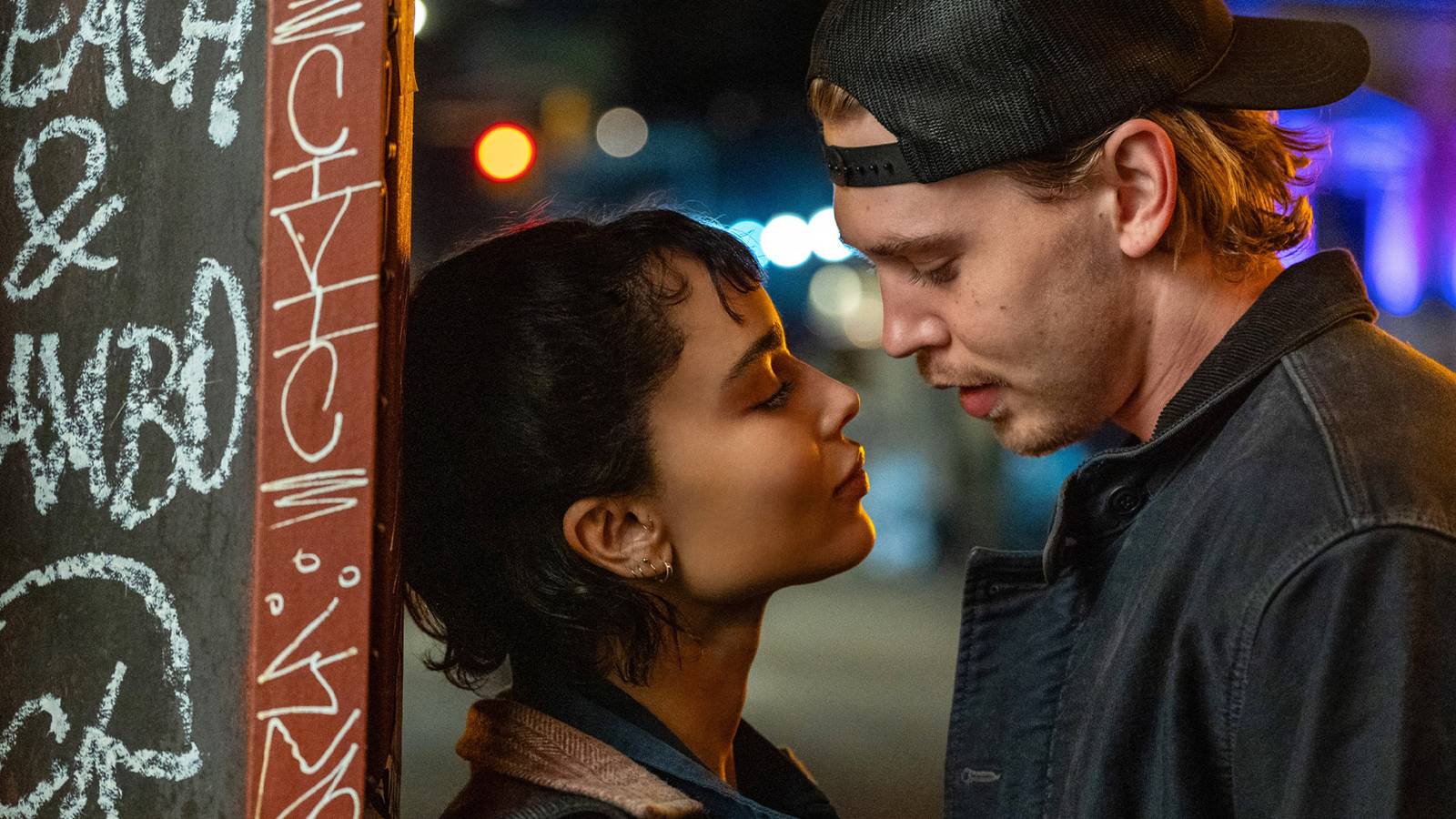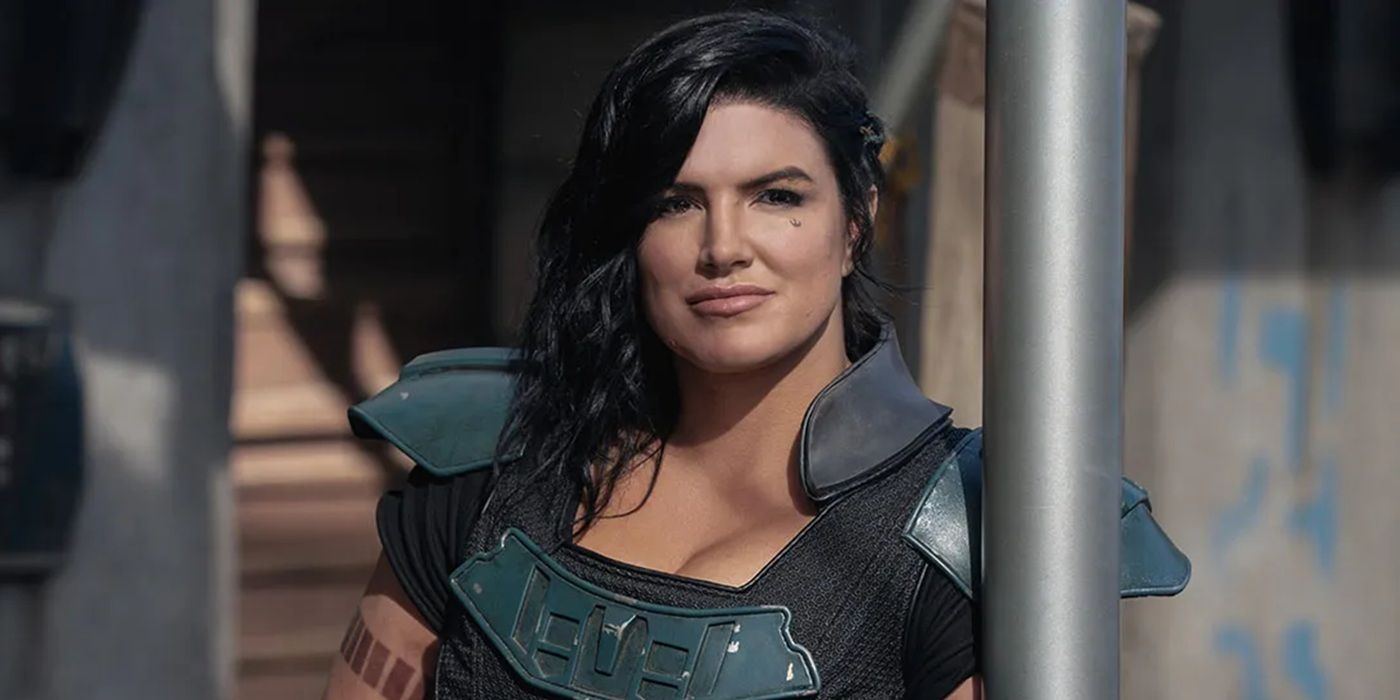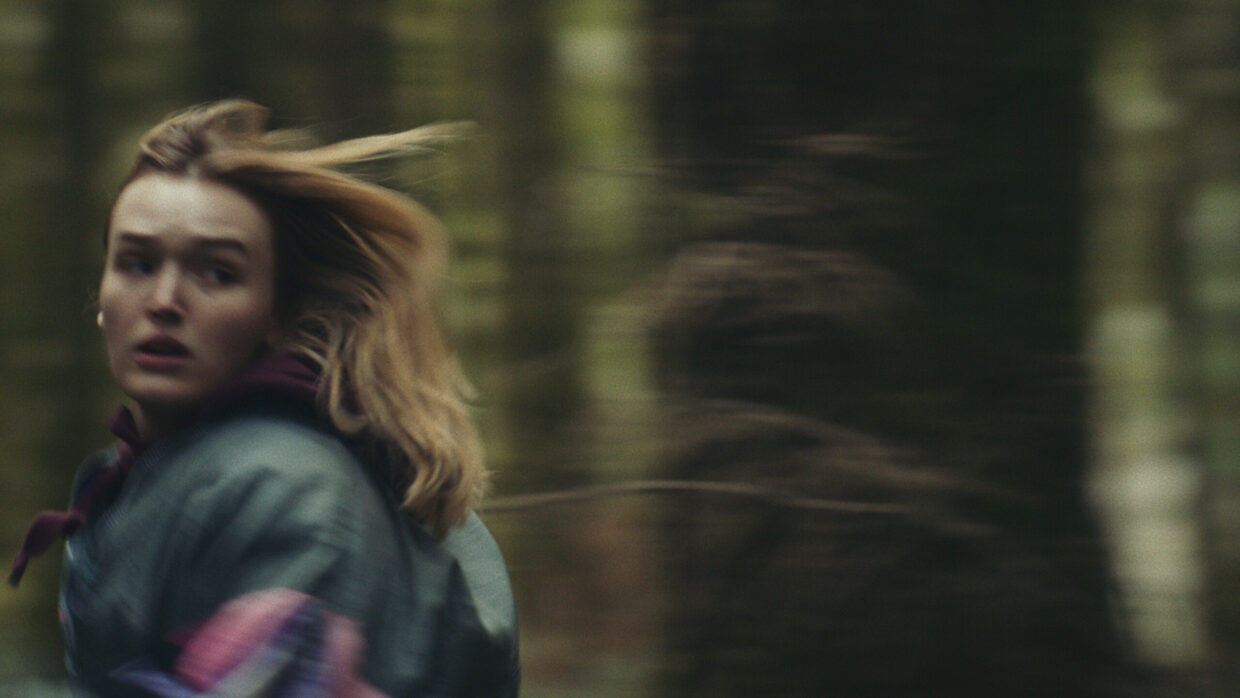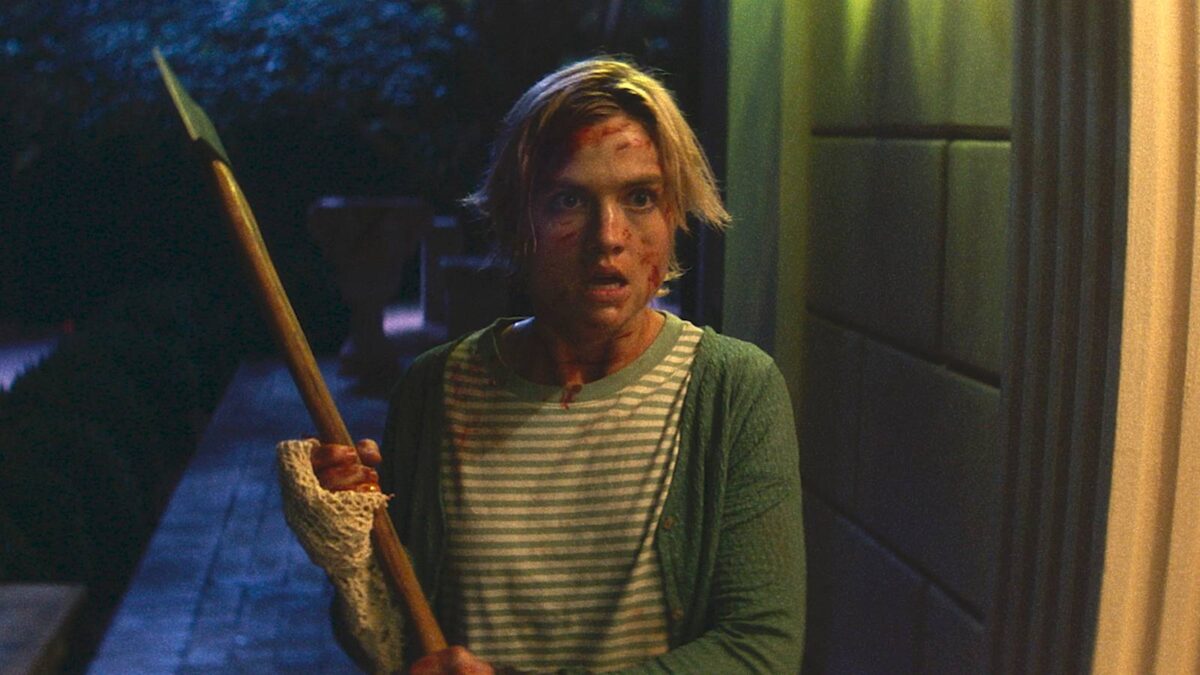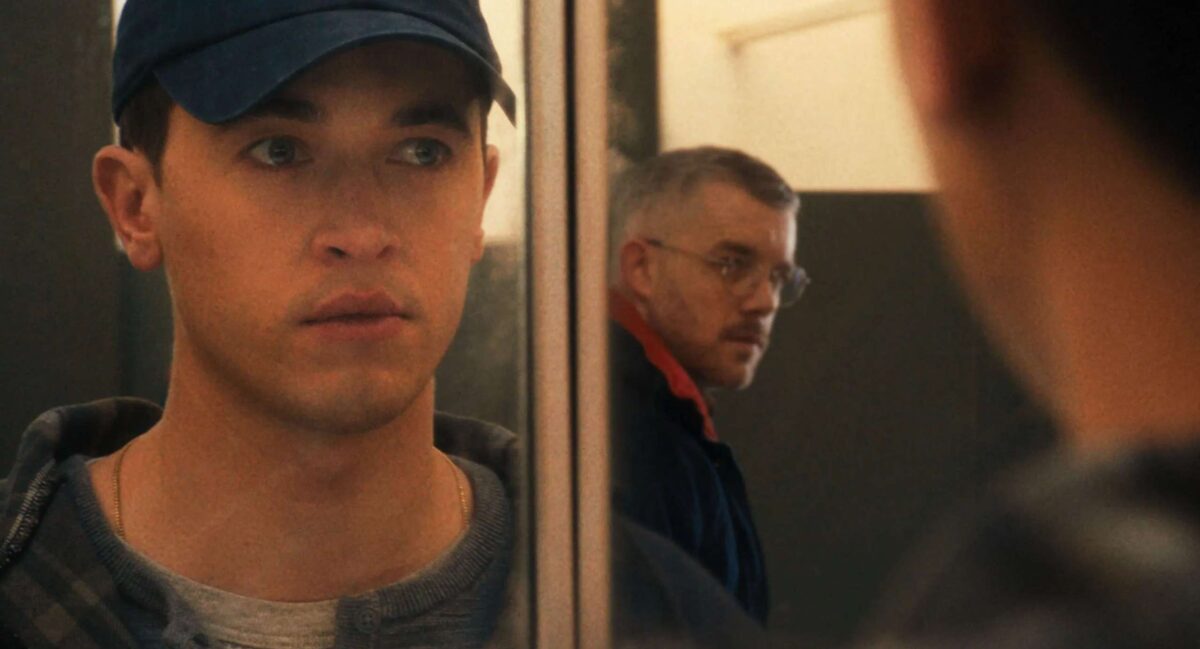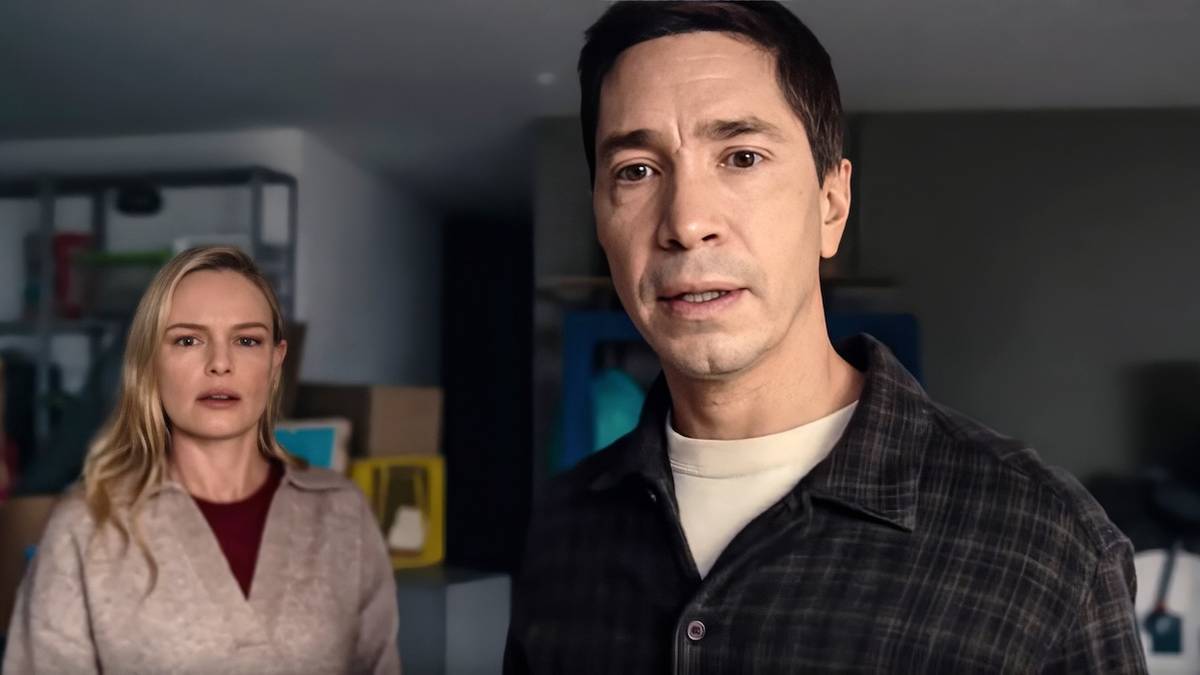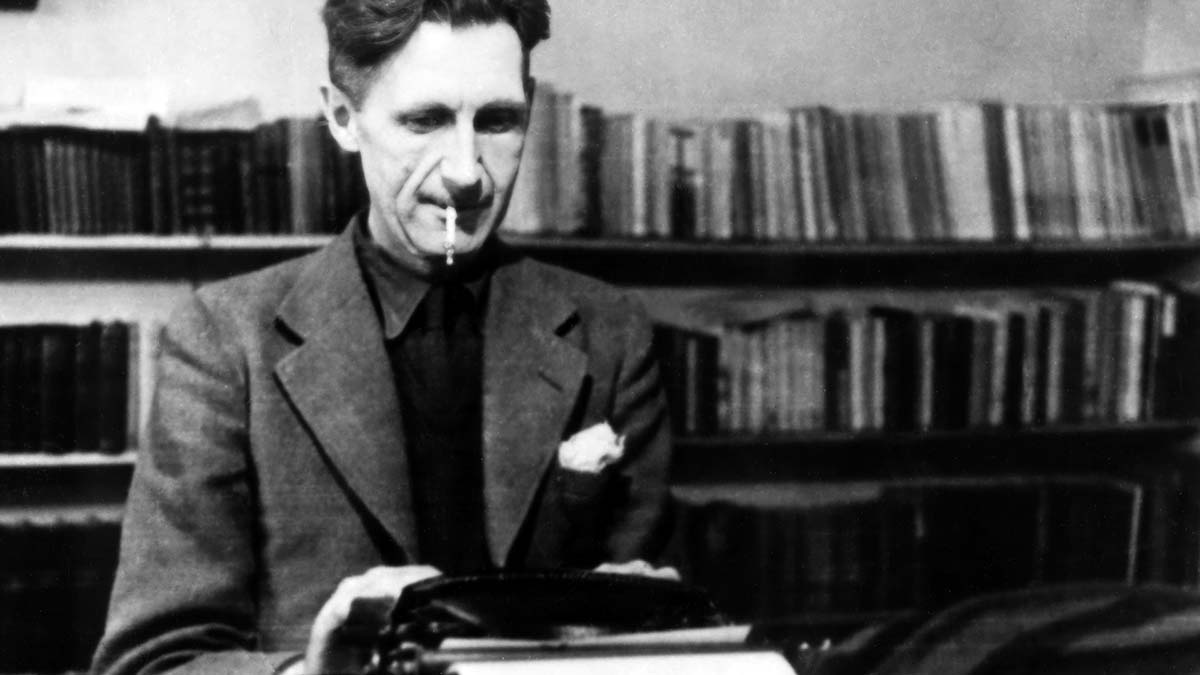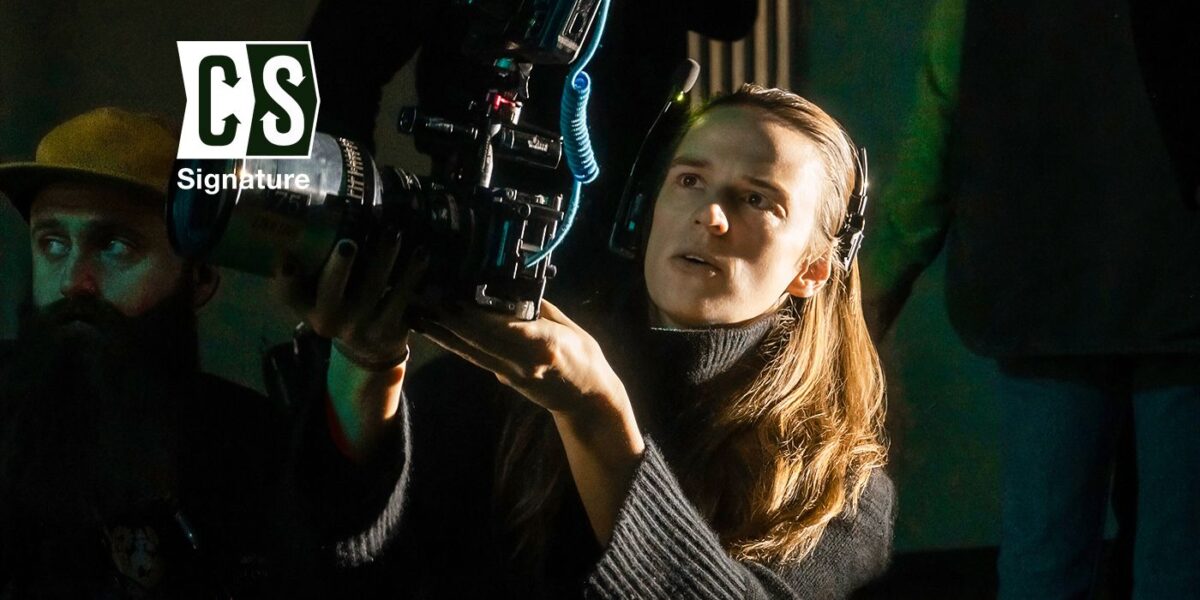
From ‘Sweet Virginia’ to ‘Severance’ and Beyond, Jessica Lee Gagné Is Finally Ready To Direct Her Most “Provocative” Project Yet
Jun 17, 2025
When Severance first premiered on Apple TV+, it became immediately evident that this wasn’t just another sci-fi show. Granted, the very premise of the series created by Dan Erickson was mind-bending, following certain employees at a mysterious company named Lumon Industries who willingly undergo something known as the “severance procedure” to separate their home memories from everything they experience when they’re clocked in at work. While Season 1 took some time to pick up with streaming audiences, the second season, which aired this past January, cemented Severance as one of the best shows on television — not just in 2025, but all time. Such an achievement wouldn’t have been possible without the efforts of Severance’s creative team both in front of and behind the camera. With director and executive producer Ben Stiller primarily at the helm, the series has also been raking in acclaim for its visuals and production design over the last two seasons — but it would be impossible to wax poetic about the striking look of Severance without namedropping Jessica Lee Gagné and her contributions. A cinematographer who’s previously worked on films like Noir and Sweet Virginia, it was the latter project that led Stiller to her unique aesthetic style and resulted in their first collaboration on the critically acclaimed HBO limited series Escape at Dannemora. “Working with Jessica these last few years has been an incredibly inspiring collaboration,” Stiller said, regarding their longtime creative partnership. “Her sense of style in all things she does permeates her work. She has an incredibly strong work ethic and a willingness to take chances and push boundaries. I feel we both have unlocked parts of each other creatively that we hadn’t explored before.” After first speaking with Gagné in the wake of her first directorial effort on Severance with this year’s stunning episode “Chikhai Bardo,” I knew I had to follow up with her for a longer conversation now that the show has wrapped up what is certain to be an award-winning season. Ahead, the cinematographer and director reflects on what first drew her to film, why she wanted to prove herself from the very first day of working on Escape at Dannemora, what she’s enjoyed most about her longtime creative collaboration with Stiller, the experience of returning to cinematography duties on the Severance Season 2 finale after being in the director’s chair, why now might the time for her to say goodbye to the series, and which story she’s interested in telling next. COLLIDER: When did you first fall in love with film as a medium? JESSICA LEE GAGNÉ: It was a long moment, because it wasn’t one moment. I grew up in video stores. My father owned a video store chain in Quebec — I’m from Quebec City — and sometimes he had to babysit us. For some reason, I ended up being babysat way more by him than my sister, and I ended up working for him at a very young age. He’d have me plastic-wrapping the VHSes or counting VHSes in boxes. There was one point where I think he had, like, 14 stores at the same time, so it was an operation. He was also distributing the cassettes for the tiny little stores that were regional, like when you would go to a grocery store in a tiny town, they would also have the movies that you could rent. So, I grew up in that world of selling the cases for the VHSes and the tokens that you would rip off. That was a huge part of my childhood. He would also bring us to watch movies a lot, and we always had movies at home, so I found a sense of comfort in watching movies, a sense of escapism. I also traveled a lot with him in his truck, going from one store to the other, and I had to make up a lot of stories in my mind because, as a kid, I had to sit and do nothing for very long periods of time. I would tell myself stories, and I would make them really visual. I don’t think I’ve ever said that to anyone, but that is a real thing. We would go to places that were so far away, like Baie-Comeau and places in Quebec. The distances are far in Canada. It would be like, “Okay, we’re going to drive for 10 hours,” and I wouldn’t have any toys or anything. There were no cellphones or Gameboys or whatever. It was just me and my mind. So, I think that had a huge impact on how I storytell because I did it so much as a kid. Then in school, when I was in primary school, I tried to get into all the music theater things, but I couldn’t sing. Very young, actually, I had a brief moment where I wanted to act. You can’t really do anything when you can’t sing in theater when you’re in these high school or primary school things, so I got rejected a little bit there. Then in high school, any time I could do a project as a movie, I would do it, and I would make all my friends act in it or be in it, and I’d edit it. I’d edit the movies with the VHS tape in my mom’s bedroom, because they had one of those TVs where you could take your camcorder to the VHS to edit manually. There was no one around me who worked in this industry, so it was a bit of a stretch for me to go out and do it, but I went to study it as soon as I started college. Here, we have a different schooling system. We have CEGEP, and then we go to university. CEGEP is two years of college, where you’re still doing, like, French and philosophy, and these kinds of classes, but you start specializing in something. I chose filmmaking, which my father didn’t support, and that really tinted the direction I ended up going in. You were doing photography, too, in school, right? GAGNÉ: In primary school. At the time, I was the school’s photographer any time there was a thing to do. Then I became yearbook editor. Anytime there was a video or photo moment, I was there. My aunt passed away when I was quite young, and I ended up inheriting her cameras. Then my grandfather gave me his cameras, and my mom, and I was the one everyone would give their cameras to when they didn’t want them anymore. I remember going to school and reading books on how to do photography with a reflex camera, and just learning about f-stops and things like that.
Related
“I’m Obsessed With Never Doing the Same Thing”: ‘Severance’ Cinematographer Jessica Lee Gagné on the Challenges of Directing “Chikhai Bardo”
She also discusses why she was initially reluctant to join the show and how she stumbled on the location that became a defining part of ‘Severance.’
The last time we spoke, you mentioned when you knew that you wanted to shift into cinematography over directing. When was that moment for you, specifically? GAGNÉ: Maybe it’s different now because people have access to so much more information than when I was growing up. Yeah, I grew up with the internet, but it wasn’t what it is today. It wasn’t there when I was a kid-kid. At one point, you couldn’t just go on Vimeo or YouTube; this didn’t exist. I went to see CEGEP in the film department, and I didn’t know what a cinematographer was when I signed up, which is kind of crazy when you think about it. There’s just a “camera person,” someone who’s behind the camera, but I’d never thought it through. So, I had to be schooled in school to learn about how films were really made. All I knew was me making VHS edits. Then, when I got to university in Montreal, because I moved from Quebec to Montreal, my first year, I came in there with some film experience because of what I had studied, but I got in there and I was like, “I’m going to be directing, right?” That’s what you do when you go to these schools: you try to be a director. By the end of the first year, I had definitely produced the visual material where people could kind of see, “Oh, she can actually…” Because in film school, it’s hard at the beginning, especially when you’re working on a film and you have a couple of lights to work with. It’s hard to make things look really aesthetic. You’re learning techniques, so some of the stuff looks really bad. But somehow my work looked good, and people wanted me to shoot their movies in the second year. It’s a three-year program, and in the second year, all the people who wanted to direct, who were friends of mine, were like, “I want you to shoot my movie. Can you shoot my thing?” Because they wanted their movie to look good. I liked that attention, and I liked that validation that I could do something in this industry. Knowing that I didn’t really have that support or belief from my father in terms of doing these things, it was validation that I think I needed. Then I went down that path. I really embraced making everyone’s projects, and same thing with the third year. When I graduated, one of my best friends in school was making a film. She got financing from the government. I can’t remember the budget, exactly, but it was just under a million, which is a big deal. We made Sarah Préfère la Course — Sarah Prefers to Run in English — and that film ended up going to Cannes. So, two years out of school, that happened, and I just got caught in this thing and was really enjoying discovering filmmaking in that way and working with all of these friends and creators that I knew well here in Quebec. But then at some point, I felt like I was missing something. Something was missing in my life. So, I went on a deeper search. What did you end up pursuing when you were looking elsewhere? GAGNÉ: I knew inside of me that I was going to end up working in the States. Worldwide, there is a desire of a lot of people to come to work in the US. There are amazing opportunities. You feel like filmmaking here is really involved on another level, in the technical world, especially, and the craftsmanship here is amazing. So, as a DP, I was always telling myself, “One day, I’m going to work in the States, but I want to make sure that if I work in the States, I come in at a high enough level that I don’t get lost in the sea,” because it can be very overwhelming coming to a new country and not having a job. I didn’t want to live that. I also have a very deep passion for European films, and I decided to go live in France. I had shot a movie there in Paris, maybe a couple of years before I decided to move there. I’ve had a beautiful experience. I love how the French make movies. There’s something very special about the family and community style of filmmaking that they have. I love how they have lunch. I wish that I could impose that as a director on a project that I do in terms of a more human aspect to scheduling, which is really difficult. It’s easier said than done. But that trip changed my desire to keep making movies because I went through periods of not wanting to work in film. It’s not easy. You go around, and you work on things for a long time. You don’t see your family or friends, and you really can lose yourself within the work. But I traveled and I did films in different parts of the world, kind of on a search for what was next, not wanting to go to the States. It was like, “Let’s go shoot a film here. Let’s go to film here.” Meeting interesting creators was great, but there was always something kind of missing, and I didn’t really know what it was. I kept going. Then one day, when I did move to France, I got rid of all my stuff, sold my car, and then I booked a ticket, and I had rented an apartment for a month in Paris to find a new place to live, and all of that. I got the email the day I flew out to Paris from Ben [Stiller]’s producers for Escape at Dannemora. Right away, when I read the email, I cried because I knew it was the thing that I wanted. I knew it was happening inside of me. We met a couple of weeks after that on Skype, and then we met again in Cannes, in person, to validate. He was like, “You’re doing this project.” I’m like, “Okay. I guess I have to go back to Canada and get a visa.” [Laughs] From there, it was seven years of working with him, and here I am now.
Jessica Lee Gagné Reflects on the Experience of Making ‘Sweet Virginia’
“I felt like I got to express the style of camera work that I really love to do.”
Image via IFC Films
I didn’t know that you worked on a movie that I have seen and will always rave about: Sweet Virginia, starring Jon Bernthal, is such a gem of a film. GAGNÉ: I was kind of running away at that point in my life, and that movie was shot in Vancouver. I had just come back from shooting a very difficult movie in India, and I was like, “I need to forget that for a minute and go do something else.” The producers of that film, who I still communicate with today, reached out. They had seen Noir, another film that I had made in Quebec before that, so they were like, “We are looking for a DP, but we’re last-minute. This thing’s going, and we don’t have anyone. It’s going to be shot really short schedule, probably a 20-day schedule.” They told me who was in it, and I was like, “Oh, wow, that’s an exciting cast.” It was very dark, and I was like, “Well, I do dark. I’ve done gritty things.” I saw photos of the town where it was being shot, this town called Hope, ironically. I went there and I did a couple of weeks of prep, barely had any prep, but I dug in. I went deep with Jamie [M. Dagg], the director, and we really bonded. It was really easy for us to work together right away, and I felt like I got to express the style of camera work that I really love to do. I didn’t even know what a remote head was. That’s how unluxurious the tools were that I was working with. But all of them were, like, me walking on the dolly doing these wrap-around shots. When the camera’s panning, I’m literally walking on a dolly where usually an operator would be like, “You need a remote head to do that.” The zooms are me and the AC in the trunk of a car. That shot where [Jon] goes to the phone booth, it’s all just manually done. It was great. I didn’t know what would come of it, and yeah, it is a film that not many people saw. I think that that’s fine. I think there are movies like that. But Ben saw it, and that’s the film where he saw the style that resonated with him for Escape.
Related
Ben Stiller Discusses ‘Tropic Thunder’, ‘Severance’ Season 2 and How Netflix Changed the Trajectory of ‘Escape at Dannemora’ [Exclusive]
After decades of work, Stiller opens up about earning his first DGA Award, reuniting with Adam Sandler, “dicey” roles, and plans for the future.
You and Ben have worked together for several years at this point. Going back to Dannemora, even before getting on the set and getting behind the camera with him, did you feel like the two of you had that creative connection, that there was early promise for the partnership? GAGNÉ: Yeah. I didn’t have to force anything or prove that much to him. I was a little bit like, “Why is this person trusting me?” for a minute. I had impostor syndrome at first. “You can have any DP. What’s going on here?” I had to trust that what he saw was what he wanted. I had to know that, “He just wants me to do what I do, so I’m going to show up and do it.” It was so collaborative, and it was so open. We were friends from the start. There was no ego involved. We were just having ideas and talking about stuff. I opened up a new way of working for him that was really lighter and fresher, and he got to let go of a lot of stuff I think he might have been holding onto. We really just were like, “What’s the best thing we can do and try to not let production get in the way of that?” I remember the first day, though, I did have this thought, like, “This is where I prove myself.” We started with one of the biggest days. I think we did, like, 30-something setups. It was Sweat running across the field, when he gets shot, and there was a big cable cam shot. One of my strengths is scheduling. I very much get involved with scheduling, and that day, I was choosing. I’m always like that. “What are we shooting? We’re going to shoot this first, then I’m going to shoot that, and then that camera’s going to be there and that camera’s going to be there.” I love the multi-camera work. I’m good at running many things at the same time. I wanted [Ben] to just focus on performance, and making sure the shots are what he wanted, but not have to think about any of the logistics. We pulled the day off seamlessly, and I was like, “We’re good.” At that point, it’s easy-peasy, right? GAGNÉ: I think it was one of the most challenging days of that shoot, and I am a control freak. Some of it comes from not being okay with failing, and that can be a big problem. It was a problem when I could never even see myself as a director because I could not fathom the idea of not being successful at something. I think it would hurt me too much, what it would do to me as a person. I couldn’t deal with it. Now I think I’m ready for failing. [Laughs] I say that now. I just was so obsessive about making sure that it would be seamless and that we would get what we needed, and I just made sure that it happened.
Jessica Lee Gagné Learned To Let Go of Control Working on ‘Severance’
Because I felt like the look was established, I was like, “Bring on the other DPs.”
Image via Apple TV+
By the time the two of you came back for Severance, was there a part of you that felt less inclined to have everything organized? Was it more go-with-the-flow in terms of the process, or was it a combination of leaving room for flexibility while ensuring you could get everything you needed? GAGNÉ: Well, in terms of openness, I personally, as the DP, always want to make sure that we can drop everything and change everything. Yes, sometimes you get a little annoyed because you’ve built this entire thing, and you’ve been working on it all day, and everyone’s motivated to do it. Then you could have a director who’s like, “Oh, I don’t feel like doing it that way.” And you’re like, “Ugh!” That happens. But I always want to make sure that the director has options and feels good about the content. Sometimes it’s also just about reassuring them, as well. In terms of letting go of control, I don’t think I was an example of that on Season 1 of Severance. I started doing that more on Season 2. In Season 1, I wanted to shoot the whole thing, and there were two directors, so that was a nightmare in the sense of the workload, because you prep and shoot simultaneously in television. So, I had to be in two places at once. I’m addicted to that because I can forget about other parts of myself when I do that. That’s also been a whole journey. But no, I don’t think I let go of anything. I think I held on because I had done Mrs. America, and I had worked with other DPs on Mrs. America, and I found the experience challenging. I got to work with great people, but I didn’t love letting go and letting someone else do it. So on Severance, I was like, “I’m doing it all. It’s mine. I don’t want anyone touching the visuals of this show.” Once I got in there and started seeing what this show would look like, the look came out intuitively. We had the references, we knew where we were going at one point, we had the right production designer, and then things… The language was solid. I didn’t doubt the language. Season 2, because the directing door opened, and when I realized that it was really right for me to do that, I was able to let go of the cinematography and embrace this time around. Because I felt like the look was established, I was like, “Bring on the other DPs.” I did select them, but I didn’t want to be that on them. I think the look of the show is so dominant anyway that they are forced to work within a box, but I felt like if I were what I would have been like in Mrs. America, like the personality that I was back then, the more controlling version of me back then, I don’t think they would have done their best work. So, I really tried to give them space.
When you find that you’re willing to step back and delegate or let other people step in, do you feel like that affects the work that you’re able to deliver in any noticeable way? Maybe it’s not noticeable to the viewer, but to you as a creator? GAGNÉ: It’s noticeable in the work of the show. If I take myself out of the equation, it’s noticeable. Severance became a bigger show because new people and more people were involved in it, as well. It got to grow. I think for me, my work, when I let go of my ego… It manifests in different ways. There’s the safety component, like when something happens last minute, and it messes up your day. We had this one moment where Adam [Scott] got this crazy nosebleed on set. We were shooting, and I’m like, “No. No, no, no, I don’t have what I need. The studio is never going to like that. Let me get another take.” Then it turns out I got an extra day, and I learned because there was something that I was doing wrong on that day. It was almost like the universe was like, “Hey! You’re on the wrong path. We’re gonna give this guy a nosebleed,” and then the next day, “Okay, we’re gonna do this instead.” Severance was layered with miracles. [Episode 7] had all these small, serendipitous, synchronistic events, and they helped me make it. I had to see that there was a stronger force working within Severance as a show. And people did talk about the delays and the budget and blah, blah, blah. I think there’s a bigger force behind this thing that’s making us almost sometimes hit walls because we’re not going down the right path. When you hit the wall, you’re forced to reevaluate what you’re doing and do it in a different way. For me, that’s been a huge lesson. Sometimes there’s a balance between the control and the action of doing something and the surrender of, like, “It’s going to happen the way that it wants to happen.” If you trust those things, you can really create on another level.
Related
“They Don’t Want To Stop Existing”: ‘Severance’ Creator Dan Erickson Breaks Down the Season 2 Finale and the Meaning of That Ending
Erickson also discusses the significance of Choreography & Merriment and which scene he’s wanted to write since the very first episode.
Season 2 is doing some really incredible things, visually. Just the finale, alone, goes beyond, compared to the very beginning of the show. GAGNÉ: The flashbacks of Episode 7 were shot last. They wanted to cut Adam’s hair. I also really wanted it to be last for spring. We shot in the house where I was living, and I wanted the cherry blossoms — that’s a real cherry blossom tree. So, there was a big push for that. But I had done other scenes. I had done a lot of the innie work with Gemma, like the testing forward with her. It was weird. I struggled to get back into DPing. It became clear to me that I wanted to direct, that this was something I wanted for myself, and it made it a little challenging. Never did I let it affect the work. I care about this show very deeply. I understand what it’s also brought to me and what it means to other people, and to be able to work on this level is just such a privilege that I really respect. But yeah, it was strange. It wasn’t the same feeling.
Jessica Lee Gagné Is Ready To Move On From ‘Severance’
“I’m working on figuring out the stories I want to tell.”
Image via Apple TV+
How would you compare directing [Episode 7] with returning to DP [the Season 2 finale]? GAGNÉ: I knew it was the last time I was going to DP for Ben, so that was bittersweet. But you have a part of yourself that wants to move on to directing, and then there’s a part of you that wants to do the best job in the world for your friend. You’re in a deep understanding state of where you’re at in life. I am so grateful that I’ve gotten to do all of this work with him. The projects he has are amazing, and understanding that I need to let go of those opportunities to move forward in my life, I was coming to all of those realizations and basically jumping off a cliff of not knowing if I’ll ever get work at that point, because the episode wasn’t out. We were doing some weird stuff on [Episode] 7; I didn’t know if the performances were going to hold up. It was more just putting these kinds of crazy transitions, and are we going to love Gemma like we love Helly? You don’t know until you edit it, until it’s all put together. I had no proof or validation of anything I’d ever done before, but there was this knowingness inside of me that I was happy when I was directing. It’s a feeling that resonates throughout my entire career of wanting the best for my friends that I had worked with. But at the beginning, I didn’t understand why I couldn’t be happy. Then, when I directed, I understood. So, it was a moment of understanding what was happening in my life. Now that the show has been renewed [for Season 3], are you planning to be involved in any capacity, or are you looking at it as an opportunity to move on and pursue other things? GAGNÉ: I’m going to be directing my first feature. I’m working on getting it cast and financed right now. So, that’s my focus. That’s my sole focus right now. Severance is a beast. You never know what’s going to happen with that thing. That’s true. GAGNÉ: It’s its own thing. But I’m working on figuring out the stories I want to tell. That’s what I’m focusing on. This one project I’m working on that I’m hoping will come through, which is very personal, and very different than Severance. It’s an erotic ‘90s thriller, but reappropriated by a woman. It’s one for the ladies. I’m excited about it. I just hope it happens. I’m willing it into existence. It’s going to happen. We both grew up in the age of VHS tapes and video stores, and at that time, there always seemed to be a delineation between TV and movies, with film viewed as the superior medium. Now, people are seeing that TV can be just as evocative, just as stunning. GAGNÉ: I would get asked that question when we did Escape at Dannemora, and it was clear to me from that moment of doing that show, but also the luxury of getting in at that level of filmmaking. I could see how TV could become a superior tool in terms of communicating. It depends on what you want to talk about and the themes you want to go into. Personally, I’m understanding that what I want to speak to is consciousness and time, and how this all works. What is reality? What is illusion? What are memories? What’s the subconscious and dreams? Those themes are so huge that they’re very hard to tackle, I find, in movies. I’m very attracted to the medium of television because, basically, it’s like a record. It’s like a song versus an album. Where the difference is is the budget. The financial thing is still shifting and figuring itself out. You have mega shows, but not everyone is creating on that level. Whereas in the film world, the privilege is usually the budget is superior for the amount of days, you have more time, and/or you’re blessed with the fact that you’re making a movie and everyone has this passionate dedication to it. It comes with these special things, which will change with time. I think that now the mediums are really colliding, and they’re just different ways of telling stories. I don’t see one as better than the other. I just think you have to choose the right medium for the story that you want to tell, because it can be a short film, it can be a long film, and now there’s no format. The big differences are budgets and time. Television is still expanding in that department. You’ve also spoken about working in an underrepresented field, in terms of how many women are in this industry. On a lot of levels, there’s still a discrepancy. Do you feel like there has been progress, though, since you stepped into the work that you’re doing? Is there still work that can be done? GAGNÉ: There’s undeniable progress, but there’s more work to be done. It’s not over. I think that where it’s most needed is on bigger projects with bigger budgets. We just have to trust more women to do these bigger positions. It takes time. Women have not had the opportunities that men have had. A lot of men have failed doing bigger projects, and there are going to be women failing doing bigger projects, and we just can’t look at them, like, “Oh, she failed. We gave her a chance.” That’s just as backwards. Giving us the chance to fail, as well, is important. As women, we always have to be perfect. We always have to come in and just do eight jobs, and also put everyone first, and also be the best. Because if you’re not the best, then you can’t make it. It’s unfair, the pressure that we put on women as filmmakers. They’re scrutinized way more than men. So, I think there’s a readjusting to do. But the stories women have to tell are insane. It’s really moving right now. You can really see the changes in that. It also starts with more female lead characters and powerful lead characters. It’s happening. It’s just taking time. We just need to keep supporting it. Going back to that project you teased, we at Collider always talk about what happened to the erotic thriller. It feels like there have been some attempts to reinvigorate it, but nothing that’s really stuck. GAGNÉ: I love that era. Also, it was the era when we were going to the movies and the era when we were renting those films on a Friday night. We were watching those movies, and they were very entertaining films. Most of them are made by men. Pretty much all — the successful ones, anyway. I just want to make a movie that’s an illusion, that you think you’re watching that but you’re watching something completely different. I’m excited to play with those kinds of ideas. On a purely selfish level, I would love to see you continue with Severance in some capacity, but on the other hand, I’m sure after “Chikhai Bardo,” there are so many people out there who are willing to follow you wherever you go, myself included. GAGNÉ: That means a lot to hear that. It’s always easy talking with you. I just feel like I’m letting the universe decide a little bit. This script came to me in a very magical way. I’ll talk about it when it’s out, because that’s when it’ll deserve to be talked about. It’s going to be provocative and very personal, and I’m going to open up parts of myself that are difficult to talk about. I understand the gifts I’ve been given as a filmmaker, and I’m very lucky to speak this language. I dedicated 15 years to cinematography. I have a super huge respect for that craft, and I want to honor it as a director. I’m just excited. We’ll have to set aside some time to circle up and chat about it. GAGNÉ: There’ll be a lot to talk about for women, especially. It’s really about women between 35 and 45, and what you go through and the desires that you have, and ideas about beauty, and just the darkness of all of that. I think it’s going to resonate way more with women than with men. Both seasons of Severance are available to stream on Apple TV+.
Severance
Release Date
February 18, 2022
Showrunner
Dan Erickson, Mark Friedman
Writers
Dan Erickson
Publisher: Source link
Erotic Horror Is Long On Innuendo, Short On Climax As It Fails To Deliver On A Promising Premise
Picture this: you splurge on a stunning estate on AirBnB for a romantic weekend with your long-time partner, only for another couple to show up having done the same, on a different app. With the hosts not responding to messages…
Oct 8, 2025
Desire, Duty, and Deception Collide
Carmen Emmi’s Plainclothes is an evocative, bruising romantic thriller that takes place in the shadowy underbelly of 1990s New York, where personal identity collides with institutional control. More than just a story about police work, the film is a taut…
Oct 8, 2025
Real-Life Couple Justin Long and Kate Bosworth Have Tons of Fun in a Creature Feature That Plays It Too Safe
In 2022, Justin Long and Kate Bosworth teamed up for the horror comedy House of Darkness. A year later, the actors got married and are now parents, so it's fun to see them working together again for another outing in…
Oct 6, 2025
Raoul Peck’s Everything Bagel Documentary Puts Too Much In the Author’s Mouth [TIFF]
Everyone has their own George Orwell and tends to think everyone else gets him wrong. As such, making a sprawling quasi-biographical documentary like “Orwell: 2+2=5” is a brave effort bound to exasperate people across the political spectrum. Even so, Raoul…
Oct 6, 2025
